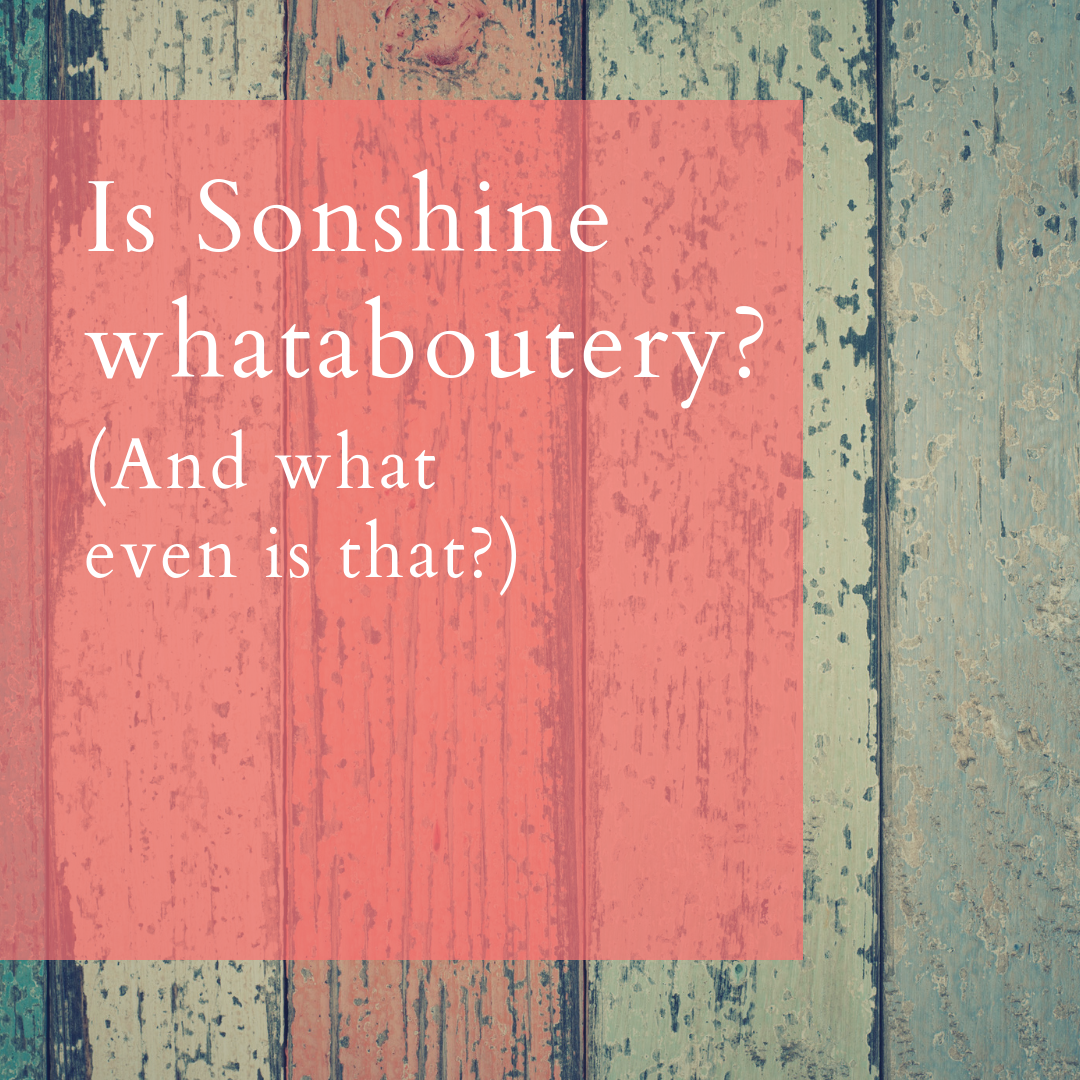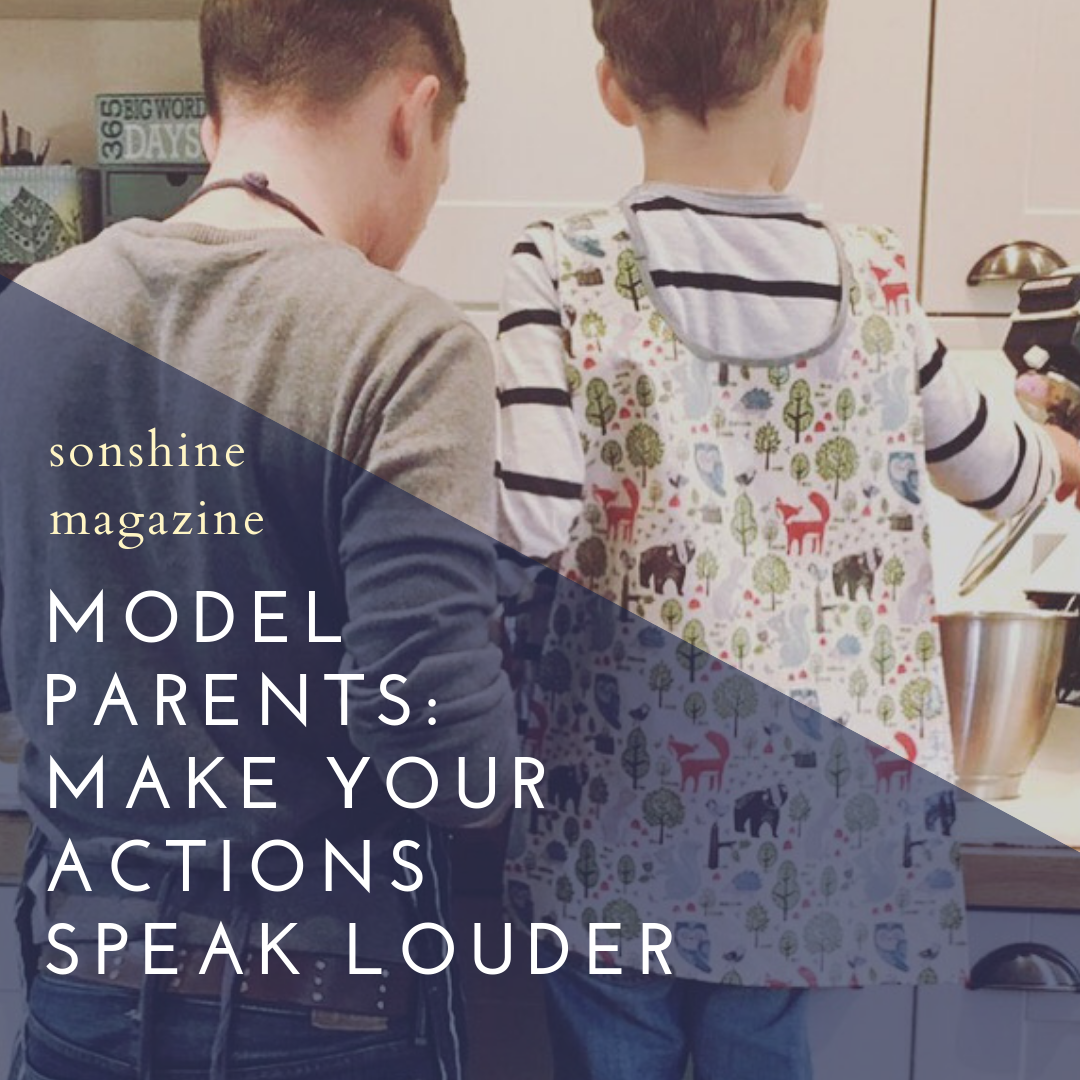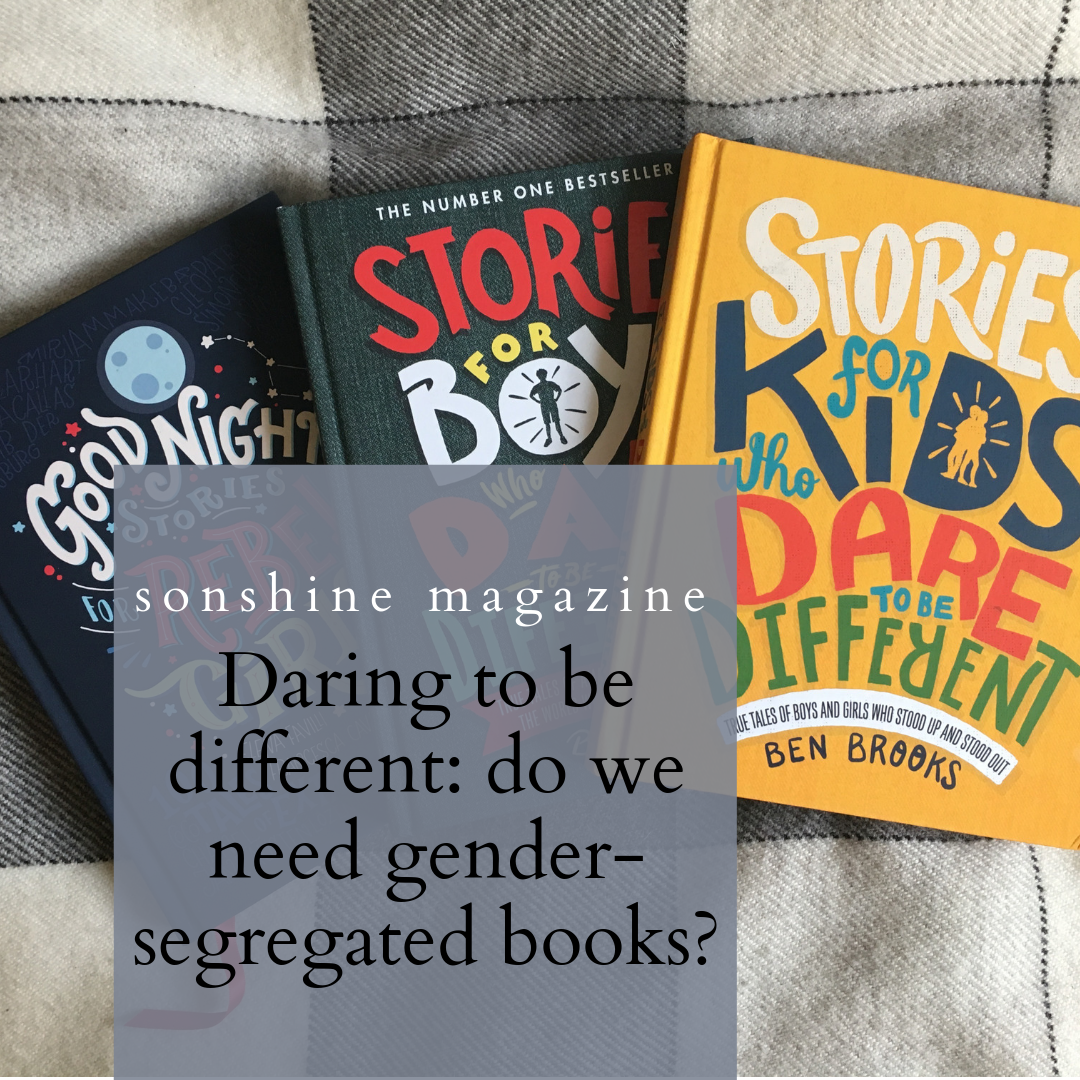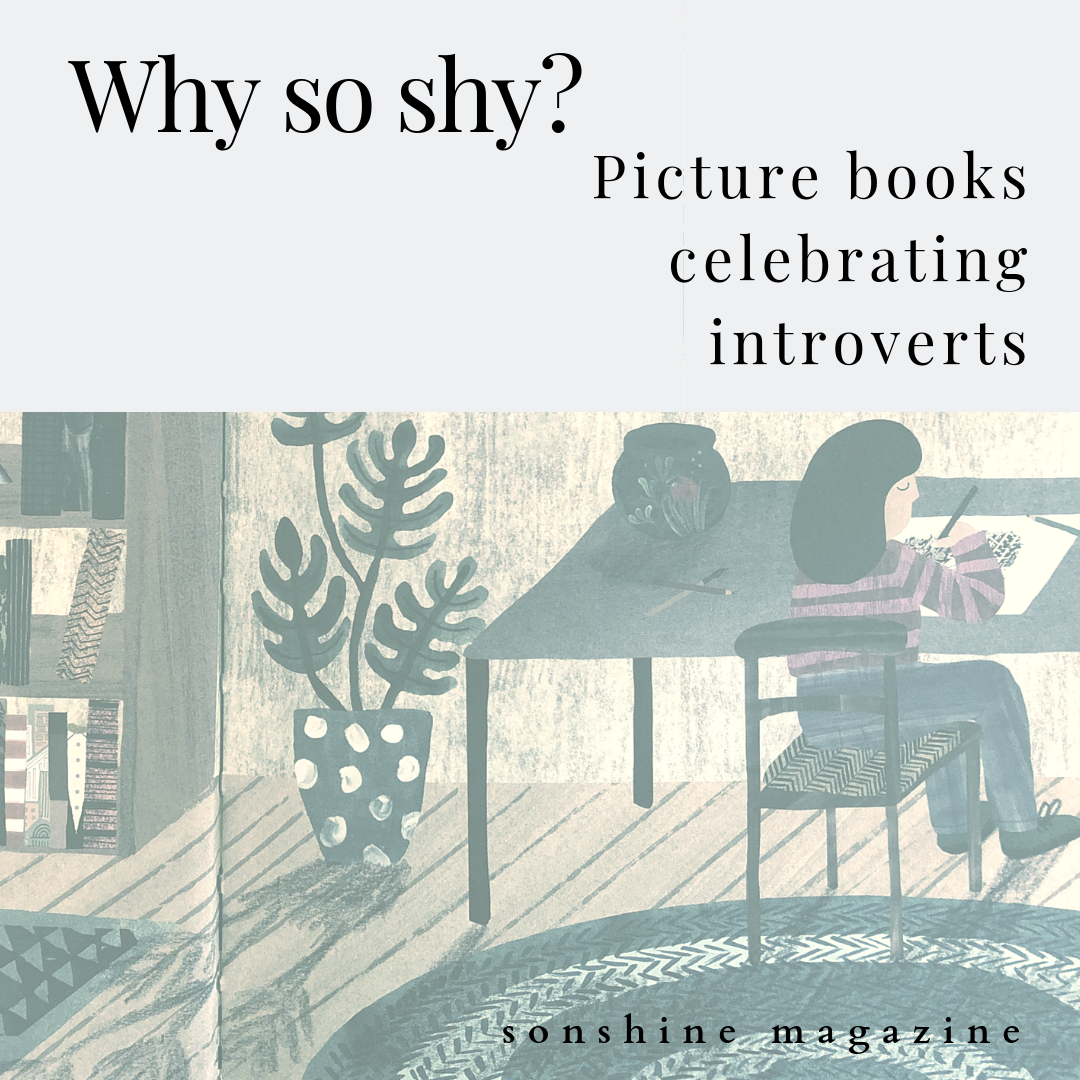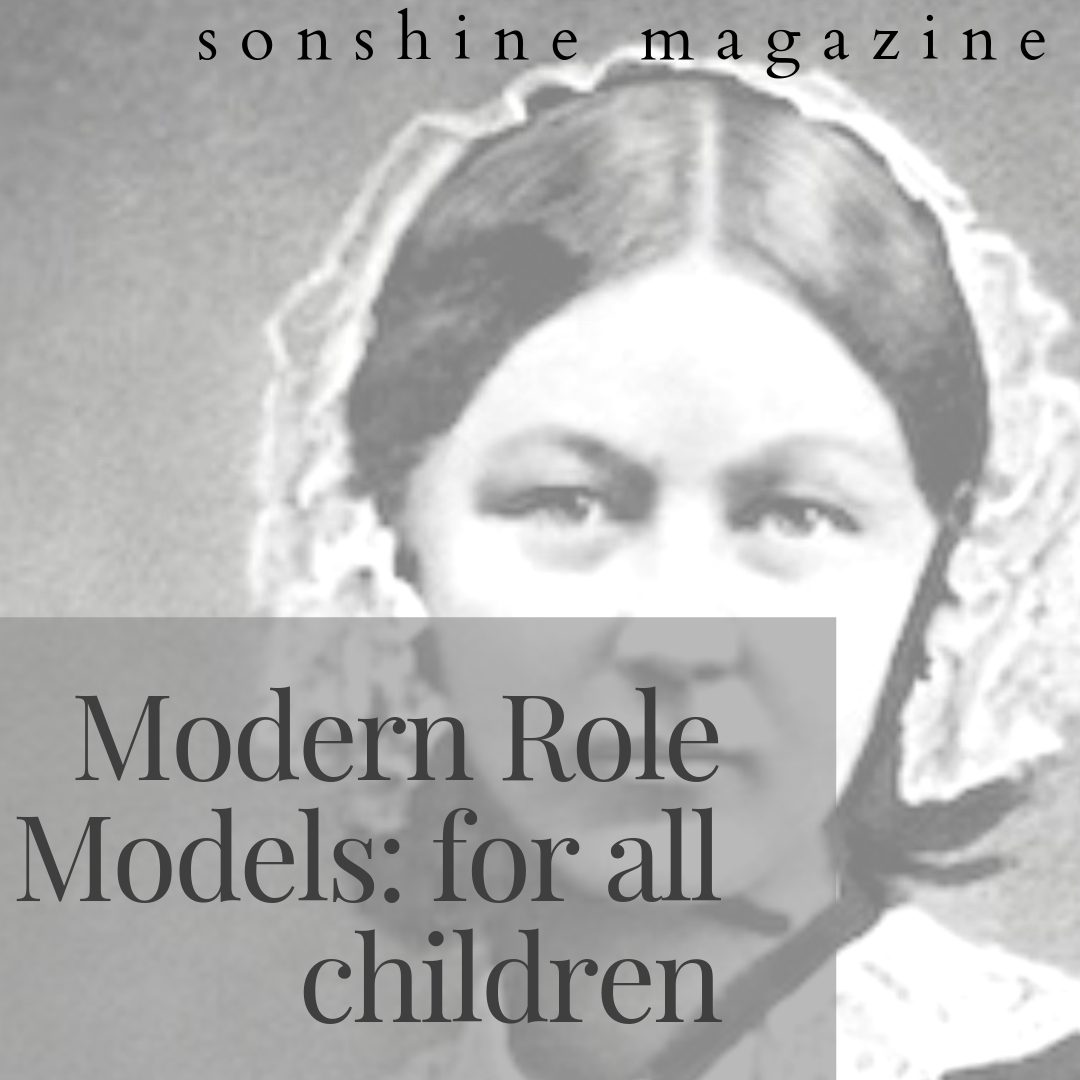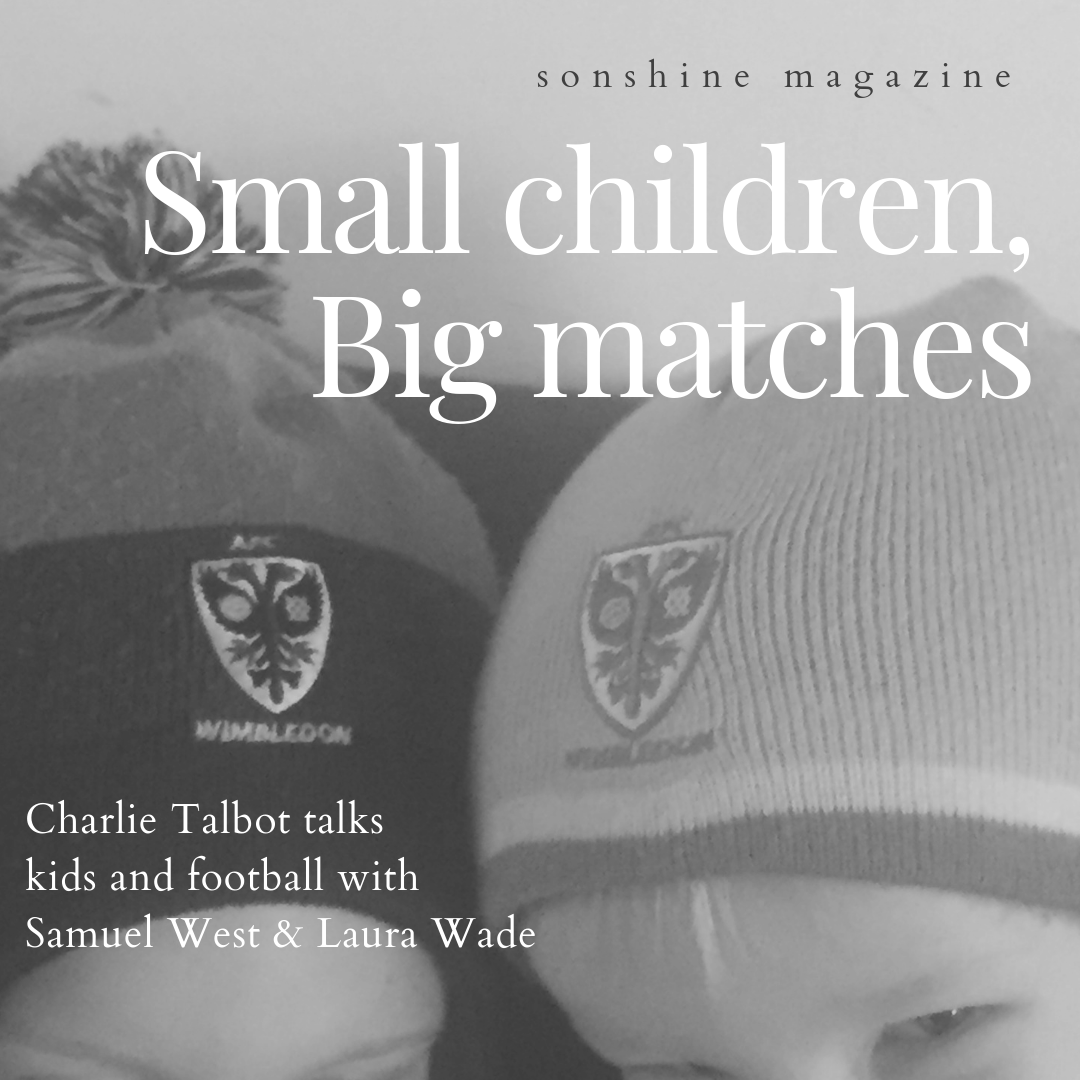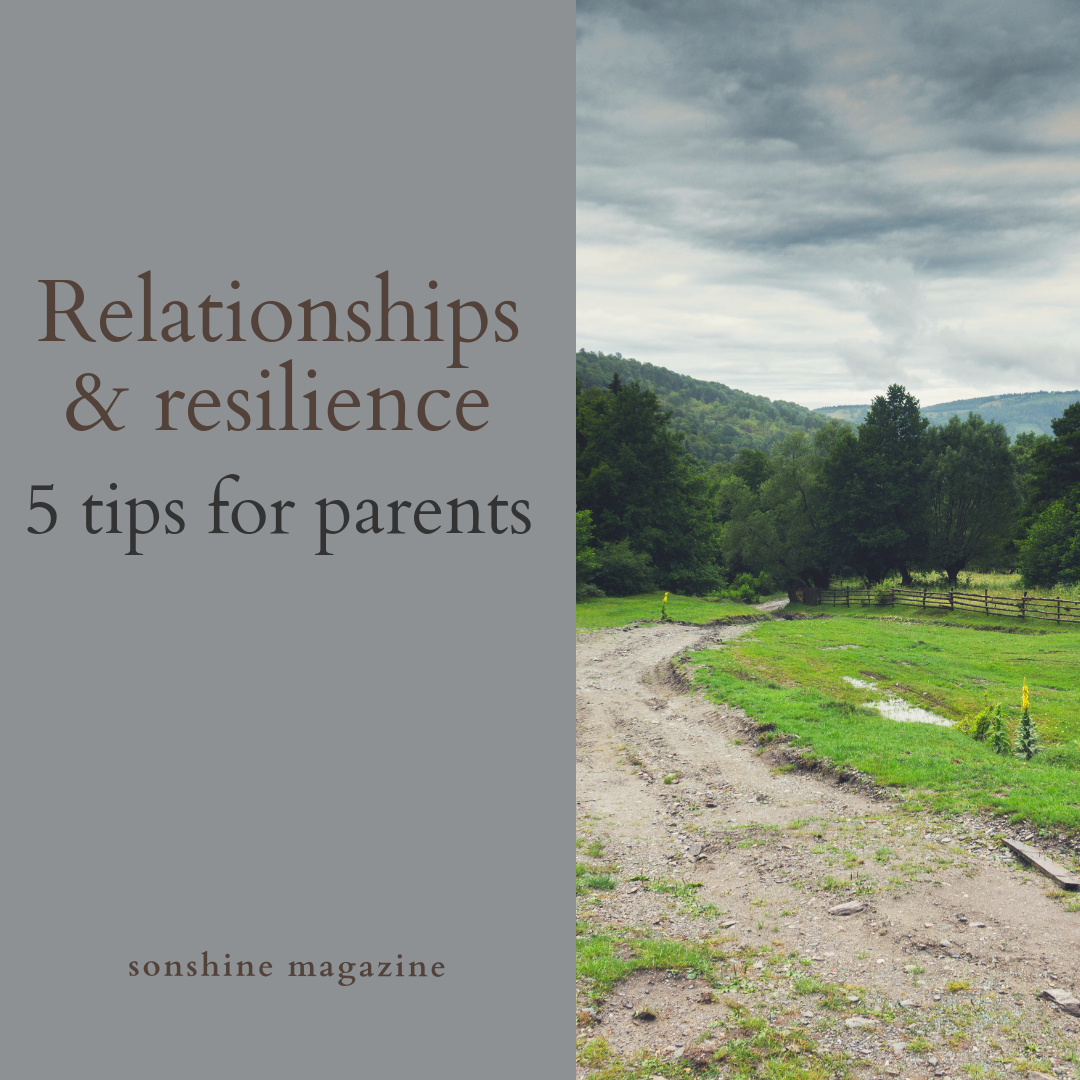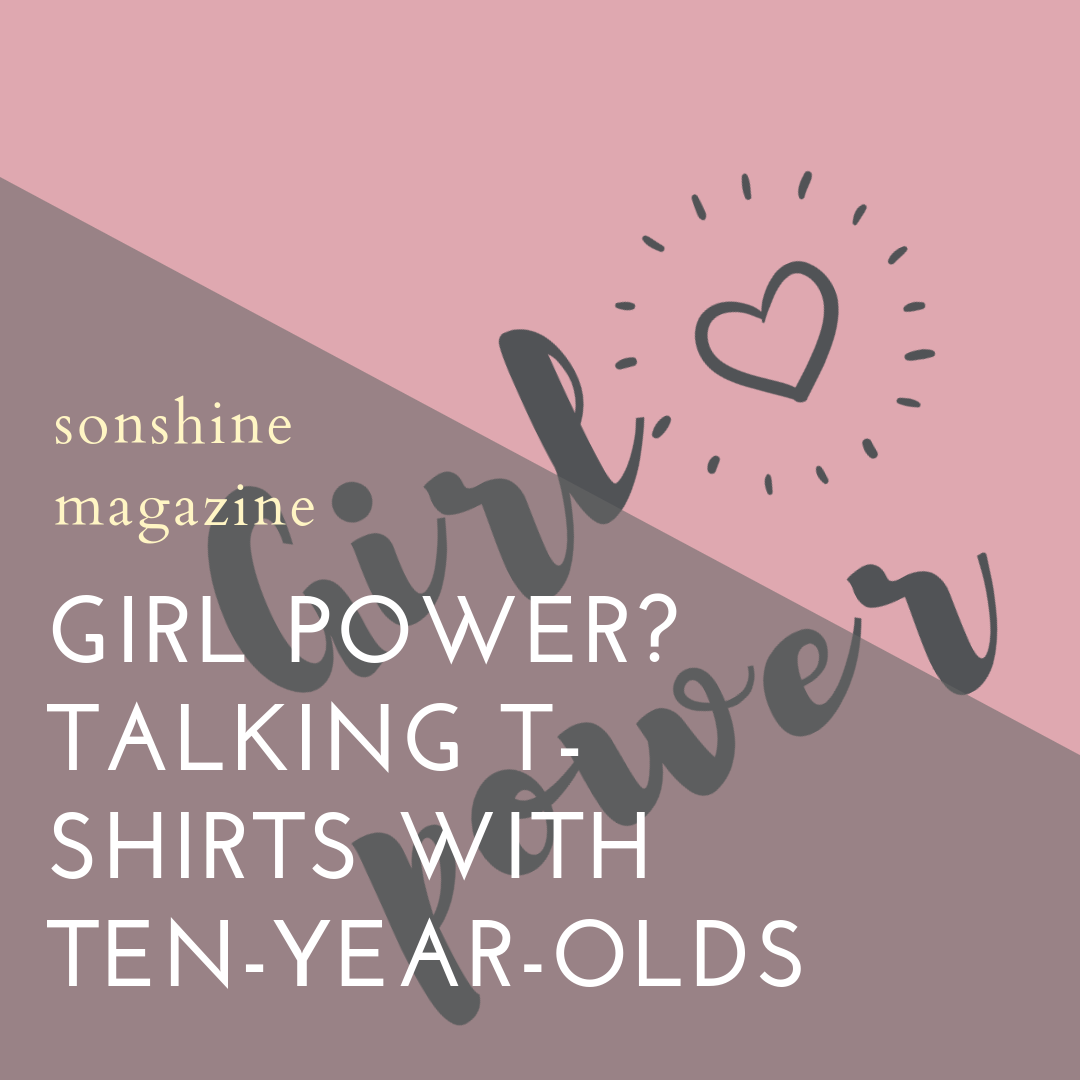Football Fandom: Charlie Talbot, Samuel West and Laura Wade
Charlie Talbot talks community, Role Models and the often-overlooked perks of supporting the underdog with Samuel West and Laura Wade.
With a reputation as a football-obsessed father, I must have seemed an obvious choice for Sonshine to ask to explain why on earth anyone would still consider taking their children to football matches. It was, in fact, mildly problematic. Despite this month marking exactly 30 years since I first attended a game myself, I haven’t actually taken either my son (4) or my daughter (6) to a game yet.
While I have a half-formed theory that there’s a big difference between encouraging children to idolise the game’s plutocrats on television and encouraging them to attend a smaller team and more actively participate in a community of fandom, the contradictory nagging concern is that I’ve spent a longer period of my adult life obsessing over sport than can surely be healthy. That I have used sport in general but especially football and cricket as a warm and comforting anaesthetic to set against the horrors of news, politics and actual real life. Would my children achieve more and actually be happier without these distractions? (Come to that, would I?). And, whilst I would be perfectly happy for them not to like football at all, what does it say about me that to support a different team and not my team, Wimbledon, would be the most upsetting act of filial rebellion I can imagine?
Luckily, I knew a man who does take his children to matches – a man who is often outspoken and fascinating on issues around parenting, providing diverse role models and combating patriarchal assumptions – in his work, in interviews and on social media: the actor and director Samuel West (@exitthelemming). He, like me, regularly commutes from North London to watch the same team, sometimes with his partner, the playwright Laura Wade, and sometimes with one or both of his daughters.
Having cycled to the ground in a blizzard, I put my half-baked notions and some other questions to Sam and Laura. If I’m honest, and this was entirely my fault, Sam and I ended up rather hogging the conversation in a somewhat man-splaining / Dons-splaining way, so this interview is somewhat lacking in Laura’s views. Sorry, Laura.
[ If you are not a dedicated football fan, you may at this point need some background to AFC Wimbledon. In its original incarnation as Wimbledon FC the team went from non-league to the top division (now known as the Premier League) and won the FA Cup. Eventually relegation followed and then, in 2002, the team’s owners were given permission to move the team to Milton Keynes and become MK Dons. Undaunted, the fans simply started again, reformed the club as AFC Wimbledon and climbed back from the amateur ranks into the professional levels of the game.]
On taking small children to big matches
CT: Going to games, when did that start?
SW: We started really when she was in arms. She went to her first game when she was 10 weeks old, a 2-2 draw with Shrewsbury.
LW: In a sling. With ear defenders.
SW: And her first away game was Oxford, a nil-nil draw against Oxford. And then we started realising that although it’s very nice having a fan-owned club where, you know, it feels family friendly, [and] there’s not a lot of racist chanting, unlike perhaps, some other clubs… there’s still a little bit of aggression that I think I would want to keep a boy as well as a girl away from. But on the whole, it's a pretty friendly match atmosphere for a small person.
We enjoyed going to away games more because they’re not sold out and there's a bit more room for them to run about, so they don’t really have to watch the game in quite the same way. When she was smaller, we took an iPad and she would probably concentrate for half the game and then watch Peppa Pig the second half. But we’re going slowly.
Sometimes I ask her if she wants to come with me and she says no and sometimes she says yes. I think when she says yes, I like it, but I don't think I could force her to come. I imagine that there will come a time when she says no more often than not, but it really has helped that Laura and I go together so we can make a family thing of it.
And I’ve noticed where I come to home games with her now that if Wimbledon lose, which increasingly they do, I mind less when she’s with me, because she doesn't always know whether they’ve lost or not. She says, “Did Wimbledon win?” And I say, “No, I'm afraid they didn't.” And she says, “Oh well, never mind.” And I think, “Oh well, never mind.” At least for her, we have a nice time. I mean we’ve had chips and I’ve sort of had to make it a nice time.
CT: Regardless of result. But in your case then, taking your children isn’t a revisiting? I think a lot of people take their children because their parents took them, so it's a family heritage.
SW: In my case, it isn't, no. I took my father to one game and my mother to a couple. My mother taught me to bowl over-arm, so I think of her as the person who introduced me to cricket, but my father is not at all sporty. In fact, I’ve only ever been to one game with him… that was at Christmas once and the whole family went.
CT: Is it important to you if your children, whether male or female, like football because you do? Is it an important part of your identity that you'd like them to participate in, to join you in liking it?
SW: I don't think you can MAKE them like it. I think a choice of team is very like a choice of religion or a choice of no religion. I think it has to be a free choice. You may have seen on Twitter a picture of our eldest in a Will Nightingale shirt [home-grown academy player now captaining the Wimbledon first team]. Until now, I’ve always chosen very carefully not to dress either of them up in colours. And if she did put on a scarf, it was through warmth and not through alliance. But then I asked her if she wanted to wear a scarf when we went to a game once and she said yes. And she's now started school and she got friends at school who support Arsenal because we live in Highbury, and she's okay with that, and she seems to think she doesn't support Arsenal, which is good because I'd have to sell her.
CT: [laughs] I have the same problem. I live in Haggerston, and most of the kids at my daughter’s school are Arsenal fans.
SW: Of course.
CT: Which is better than the Chelsea-supporting teacher, who's more of a concern, to be honest.
On football and gender stereotypes
CT: What got you into football as a boy?
SW: I learned my football from friends at school. I never had a dad or indeed a mum who took me, so I think probably the template I grew up with was that football very much was a boys’ game, but it was one that I shared with friends who were my own age rather than with a parent.
When we had our first child, the first thing I remember noticing about girls in football was a woman from an American magazine writing to say, “I think my son might be transgender because he likes soccer.” And I remember thinking that it must be a misprint, and it wasn’t. She was so convinced. She came from a baseball/American football state or family, or indeed country. And if you liked soccer, you were effeminate, you were a girl. And she was so worried that she was considering whether to have gender reassignment surgery for her boy; because he liked football.
CT: Wow. That’s an inversion of the British perception for sure.
SW: So I did think, well it's all a bit random, isn't it? And Laura and I discussed, we didn't necessarily want our daughter to play football or to necessarily enjoy going, but we wanted her to think that she could. That was the important thing. So she went to a thing called Little Kickers when she was 18 months old, from when she could run really, which is basically playing around and doing obstacle courses and being silly with a tiny bit of football thrown in. There are equal numbers of girls and boys in the class, and it's led to her growing up thinking that football is a game that not only she does enjoy, but is absolutely for her.
CT: I appreciate this is hypothetical in your case, but would that all feel the same if you had male children?
SW: We do try and do things exactly the same as we would whether our children are male or female. And I think if we’d had twins, it's possible that a preference might have emerged for the boy [enjoying football] because football is still primarily seen as a boys’ game. But I do think that even since our first daughter was born, the number of things that she can watch women doing professionally, to a high standard has really changed. I tell her about conducting and she watches a woman conduct a symphony orchestra or the last night of the Proms. I tell her about being an astronaut and she watches her favourite astronaut read her favourite book to her from space. I tell her about the Lionesses [The England women’s team] and we watch them in the European Championship.
One thing we should say we haven't done yet is taken her to a live women’s or girls’ game, and I'm not happy about that. But when we go to football, she says, “Are we going to go and watch boys or girls?” Because she knows that girls play football because she’s watched the Lionesses and just as she now says, “Are we watching Doctor Who? Is it a boy Doctor Who or a girl Doctor Who?” in both cases those are equal choices.
CT: And obviously, the same is therefore true if you've got male children?
SW: Exactly.
CT: They have the same exposures for life. I’ve got a younger son and an older daughter and they can watch the same thing. They can watch Lionesses in the same way that they watched Harry Kane in the World Cup.
SW: Exactly. I really hope that if we’d had a boy, we would’ve, in the interest of fucking up the system a bit more, taken them to a girls’ game by now because they have to learn that women play football as well, and feminism is not just for girls. [Since this conversation, they have gone to an AFC Wimbledon women’s match]
On Footballers and Role Models
CT: What do you think about, possibly an overstated fear, but footballers as role models or people that your children might look up to compared with the other people?
SW: That's difficult. I always feel slightly sad for footballers who have to be role models, because nobody voted for them. They’re just really good at football. David Beckham earned a lot of money because he could score from inside the halfway line. I was there, maybe you were as well.
CT: Yes. [sighs].
SW: He didn’t ask for a life in the public eye, he just happens to play football very well. I think if you get paid a lot of money that is in the public eye, I suppose you should try and be a role model. But the idea that we should look up to Tiger Woods because he’s really good at knocking a ball into a hole seems to me nonsensical. If we voted for you and you’re an MP who stands on family values and then we find out you've been having an affair, then I think I can say you're not being much of a role model. Beyond that, I suppose I wouldn’t look to footballers as role models.
CT: So from the angle of boys, you don’t necessarily think you are taking them to see games and saying why don’t you try to be like these men?
SW: I think sporting heroes and heroines are great because they have to be very single-minded, but I would also encourage children to find their role models in science or music or politics. We've got a copy of [Goodnight Stories for] Rebel Girls and last night [we read] Venus and Serena Williams and they're pretty awesome people for anybody to be inspired by. But I wouldn’t, I don't know…that’s a good question. What do you think, Laura?
LW: I think I suppose it hasn’t really come up yet, has it? As she's not yet aware of individual players.
SW: No, although now she does have Will Nightingale’s number on her back.
CT: So the process is starting then? It often feels to me that the Platonic ideal of football, if you like, is quite aspirational, but through contact with real footballers, quite often they very much have feet of clay. In fact even as an adult, I’ve found I probably enjoy football more the less I know any of the players. Getting to know footballers or getting to know more about them does not always engender positivity…
SW: Although I’d die if I met Lawrie Sanchez [scored the goal that won the FA Cup for Wimbledon in 1988, and the one that secured promotion to the First Division, as was, in 1986].
CT: He’s a good case in point. He’s grumpy, objectionable… So in a way, the more they stay over there, in the distance, the better. I guess the same’s true of actors and musicians, lots of other people?
SW: Well, Bob Dylan said, “Just because you love my music doesn't mean I need to be nice to you.”
CT: Exactly, and there’s the whole ‘never meet your heroes’ thing. So I think even to your children, you may be more be saying “Admire the dedication and the way they play”, that doesn’t mean you necessarily aspire to be them.
LW: It doesn't mean they're savoury people. No.
CT: But whether you have boys or girls, the players are very visible. They have an impact on young minds. And here, at Wimbledon as a smaller club you’ve got the fact that…
SW: People actually see them.
CT: Exactly. They see them. They meet them. Like Lyle Taylor, for example, he was very good at it.[Wimbledon’s star striker for the past three seasons, who left and joined Charlton last summer].
SW: Yeah, yeah, he was, he was.
CT: He was very gregarious, you could go and talk to him. If you watch Arsenal, you’re not going to get to meet Mesut Ozil.
SW: No, no.
CT: So I don’t know, I don’t have an answer to it, but I think it’s an interesting question.
SW: It is a very interesting question. I don’t think anybody should be paid 350,000 pounds a week.
CT: No.
SW: And I expect if we paid Lyle Taylor that much, he'd be a bit more of an arsehole.
CT: Yeah.
SW: He’d also still be here of course.
On going to live experiences and community in fandom
CT: So do you think there's a difference in encouraging children to identify with sport in the live environment compared to watching things on television?
SW: I think that's a very good point. We're unusual in that respect because Laura writes for the theatre and I'm in it, and so we obviously we do things live. Absolutely I'm into the live. I think it's really important and exciting, and I think it's the same with bird watching [another Samuel West obsession you can follow via his Twitter]. You have to put in the hours with this stuff. You have to sit through a lot of windy November nil-nil draws on a Tuesday night in the rain before you get your five-goal thrillers. You know, whether it's bird-watching or football. And I think on the whole, just getting out and doing things together is a good way of bonding.
LW: I think the thing about this club, is that it feels quite healthy in terms of being a thing that doesn't cost a huge amount of money. It doesn't cost as much as it costs to go to Arsenal. It's not about her going and wanting a fifty quid strip.
CT: Good point.
LW: There's a modesty and a community to it.
SW: And the fan-owned thing is important.
LW: It feels important for her to understand that kind of a system really, yes.
CT: If there is something different about the values of the community, the volunteers, the fan-owned aspect of Wimbledon, does that make coming here and bringing children here different to, not all clubs, but certainly a lot of clubs? Obviously it’s different to the big TV / Premier League clubs but even different to say, Oxford or Gillingham or another smaller team? Not that a four-year-old notices or necessarily cares this club is fan-owned. Not that a lot of 34-year-olds do, come to that.
SW: No, I don't think they do. But we went to Gillingham and they were really, really nice. I think our day out at Gillingham was absolutely lovely from start to finish, and we had the kids with us. Oh no, we just had the older one.
LW: No we didn’t.
SW: Ah we had both.
LW: We took the buggy up.
SW: That's right.
LW: Do you remember?
SW: Yeah, we did, we were in the Metropolitan Police official photo.
So I don’t know because I've never supported another team. It's hard to say. I've always liked the ethos of this club. I've always liked that it's small and not up itself. I was thinking back because it was an anniversary the other day. Would it have been 20 years since we signed John Hartson and put him on 20 grand a goal?
CT: Yes it was.
SW: I remember getting the news on the Clubcall in Shaftesbury Avenue at one pound-a-minute, calling up in the days before mobiles.
CT: Calling Clubcall is pretty tragic. I thought that when you put out a tweet about it, that is properly committed.
SW: Yeah, but I remember walking out of the phone box thinking, "Something's happened and I don't think it's good."
CT: So does that mean, by extension therefore, that that kind of football is less your thing? If you had been an Arsenal fan or a Chelsea fan, you would be more disillusioned with introducing children to that world – of TV games and massive money. Rather than the world of Wimbledon, or Oxford or Gillingham. Or even Haringey Borough.
SW: I think I probably would. If we lived in North London and I didn’t already have my team, we'd go and watch Barnet I expect. Or even maybe Haringey Borough. I've always liked the underdog and I've always thought Wimbledon was the underdog. Even when we were sixth in the first division, it still felt like we were putting one over on the big boys. And I think losing that feeling was what sent us down actually.
On whether football fandom is a useful pastime
CT: Do you ever have a slight concern that all the hours you’ve spent obsessing over Wimbledon or going to Wimbledon games could’ve been spent doing something else? And if you are re-visiting that on your children? I occasionally look at people that don’t like sport and think how much free time they must have compared to me, or what else I could’ve done with it. And there’s part of me that feels, I wouldn’t say guilt or such, but there’s part of me that feels perhaps slightly unable to answer the question ‘Why do you spend so much time on this?’
Occasionally I feel slightly bad about introducing someone else [my child] to it, especially if they may possess genetically the same level of obsessive tendencies.
SW: I think if you introduce them, you’re not forcing them to like it. I mean, for me now, I don’t have any choice. It’s like people say, “Why don't you support another team?” The question doesn’t make sense, it never will. It’s not a choice.
CT: Do you have ever have an idle moment when you think about the amount of hours you’ve spent on it though? I mean the same’s true with me for cricket as well, but if I add up all the hours spent obsessing over England cricket or my own terrible cricket, or sport in general I…
SW: No, I never do actually. I suppose I think I've always liked the conversations and the places that football has taken me to. And I think for a straight man who works in the theatre, football is a useful common language. I think for [any] straight man, football is a useful common language. You know, I can get into any North London taxi and talk about Arsenal or Spurs, and not look like a dick. That's quite useful. Or, Laura – you can talk about football to your father now and he was so proud about that.
LW: He thinks it’s hilarious.
CT: Is that something therefore that’s useful whether you have girls or boys? Is that still true? Something they can use to relate?
SW: Yeah, I think it is. But I think you have to be quite selective. If you really don’t like football, it's something to be proud of and it’s okay to say, “I'm not into football.” And when a bloke says that, it's still quite a statement. You have to be quite sure of yourself saying, “That doesn’t interest me.” There's a book by Steven Appleby, the cartoonist, called Men: the Truth. And it’s basically a sort of series of cartoons, 20 years ago now, it might read a bit old fashioned, but I remember one of them. ‘Things men think but are never allowed to say’ and the cartoon is It’s the FA Cup final, which teams are playing? You're never allowed not to know, as a man.
With that we went in to watch the game. It was below freezing and the sleet continued to drive sideways under the Main Stand roof. I had to buy a pair of tracksuit trousers from the club shop to have something dry to wear. Wimbledon were dreadful, losing 3-0 to Fleetwood to sink further towards an increasingly certain-looking relegation. They mustered only one shot on goal and the general lack of interest and commitment from the vast majority of the players couldn’t have been held up as a role model for anyone.
Ever since I was considered old enough to be allowed to go to them, I’ve always loved night games. There’s something heightened about the atmosphere under lights: brightly-covered heroes doing battle in the well-lit arena while all around the fans roar them on from darkened stands. For children there’s something magical and more illicit seeming about it – a rare extension of bedtime and what feels like a glimpse into the nocturnal adult world.
And as you get older it becomes a great punctuation to the working day: anticipation in the afternoon, dashing away from the office or workplace to travel down. Hoping the late return home will be warmed by the adrenalin of what you’ve seen, the excitement of sharing in the success making up for the lack of sleep.
We got none of that after this conversation. Sam was moved to remark on Twitter it was right up there as possibly the worst performance he had seen in 38 years. I didn’t disagree. Writing up this interview and polishing it as an explanation for Sonshine readers and parents, utterly baffled why any responsible adult would wilfully inculcate regular football-watching in their offspring, felt like a grim joke.
But then, the coda.
Four days later that same team, rock bottom of the third tier of English football, took on the multi-millionaires of West Ham in the FA Cup. A mis-match of epic proportions: West Ham had spent £162 million in transfer fees alone to assemble their team, where Wimbledon’s outlay was £53,000. In keeping with the disparity of modern football West Ham’s wage bill is 50 times Wimbledon’s.
And yet, and yet…
At half-time Wimbledon were two goals ahead. Dreamland. One minute into the second half it was three-nil. Delirium. West Ham finally rallied and dragged themselves back into it: 3-1, then 3-2. Nerves frayed. Until, with minutes remaining, Wimbledon scored a fourth to secure a hugely unlikely win. The fourth goal headed in by Toby Sibbick, a 19-year-old product of the club’s academy.
As Sam said, if you support a little team, if you go regularly to games and you are involved and participate in your support rather than simply watch a Premier League team on television, then you put in the hours and days and seasons at the bad games. But that means you earn the good days, the glory nights.
And four children in North London wore their Wimbledon hats and scarves to school and nursery a little more proudly on Monday.
Charlie Talbot is a writer, producer and former stand-up comedian who lives in Hackney and commutes south of the river for his football fix. Find him on Twitter @charlietabloid



